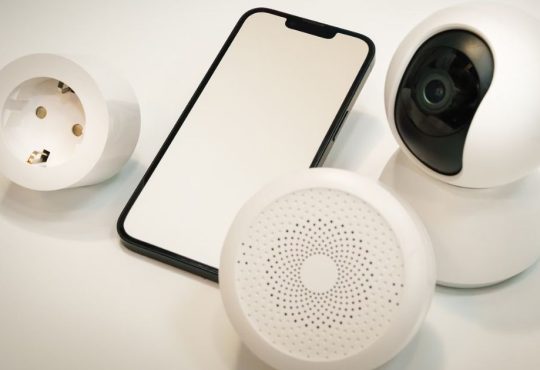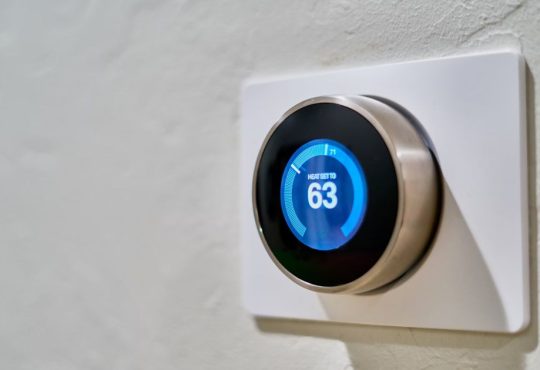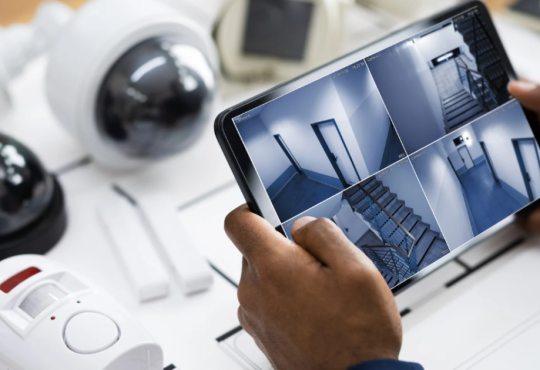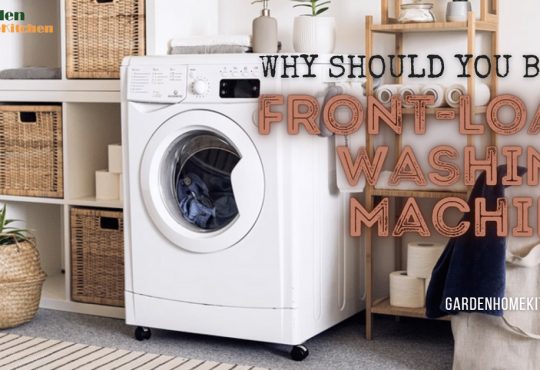Building a state-of-the-art smart home has never been easier or more affordable. Various smart home components, including smart bulbs and speakers, enhance automation, but selecting the right hub to integrate these devices is essential. This guide identifies the best smart home hubs, ensuring seamless connectivity and functionality.
Smart home systems generally fall into two categories: those prioritizing convenience and those focused on security. While expansion into both areas is possible, determining the primary goal before purchasing can help select the most suitable system.
The Best Smart Home Hubs 2025
Samsung SmartThings Station
The Samsung SmartThings Station is a versatile smart home hub and wireless charging pad. It connects and manages smart devices, automates routines, and supports Matter-compatible gadgets. It also offers fast wireless charging for phones and other devices.
Pros:
- Stylish design
- Includes an onboard control button and wireless phone charging
- Matter certification enhances compatibility
Cons:
- Features are primarily Samsung-specific
- No Z-Wave, battery backup, or cellular backup
- Setup can be unreliable, with inconsistent technical support
Key Features:
Samsung SmartThings Station functions as a powerful Matter-certified smart home hub. Unlike manufacturer-limited hubs, this system supports a wide range of Matter-certified products, providing extensive compatibility. Non-Matter SmartThings hubs, such as the Aeotec Smart Home Hub, allow for an easy transition of non-Z-Wave devices. Integrated wireless charging enhances its utility.
Ideal Users:
For those seeking a Matter-compatible hub with broad device support, the Samsung SmartThings Station provides an efficient solution. Although Samsung has integrated hub features into smart TVs, monitors, and refrigerators, this standalone hub remains a powerful and user-friendly option.
Aeotec Smart Home Hub – Top DIY Pick (Runner-up)
The Aeotec Smart Home Hub is a versatile DIY-friendly device that serves as a central hub for smart home automation. It supports multiple communication protocols, including Zigbee, Z-Wave, and Wi-Fi, allowing seamless integration with a wide range of smart devices.
Key Features:
Previously, Samsung discontinued its SmartThings hub, incorporating its technology into its Bespoke smart appliances. The 2023 release of the Samsung SmartThings Station introduced Matter support but removed Z-Wave compatibility. Aeotec continues to offer a SmartThings hub supporting Zigbee, Z-Wave, Bluetooth, and Wi-Fi, along with compatibility with major brands like Amazon Echo, Google Home, and Philips Hue.
Ideal Users:
This hub is ideal for users seeking a versatile system integrating various smart home products across multiple protocols. It features Zigbee, Matter, and Thread support, along with Z-Wave radio capability, providing extensive flexibility. Those prioritizing home security with professional monitoring might consider Ring Alarm products as an alternative or complement.
Ikea Dirigera – Top DIY Smart Home Hub for Beginners
The Ikea Dirigera is an excellent choice for beginners venturing into smart home automation. Designed with simplicity in mind, it serves as a central hub for controlling Ikea’s smart home products, such as lights, speakers, and blinds, through the Ikea Home Smart app.
Pros:
- Affordable pricing
- Simple setup and operation
- Future Matter support is planned
Cons:
- Limited to Ikea’s smart home products at present
- Requires a wired connection to the router
- Basic feature set
Key Features:
Ikea Dirigera provides an accessible entry point into smart home automation. Currently, compatibility is limited to Ikea’s smart products, but future firmware updates are expected to enable Matter support, allowing for integration with third-party Zigbee devices. While unofficial third-party compatibility exists, Ikea does not offer support for such configurations.
Ideal Users:
This hub is suited for newcomers seeking a straightforward and reliable smart home experience. Ikea’s intuitive companion app facilitates easy setup, guiding users through adding and managing devices. Future Matter support may expand its capabilities, but it remains best suited for those using Ikea’s ecosystem.
Considerations When Choosing a DIY Smart Home System
Device Support
When selecting a smart home hub, it’s essential to consider its compatibility with various devices. Some hubs are designed to work exclusively with proprietary accessories, limiting expansion options to a specific brand’s ecosystem. Others offer broader support for third-party integrations, allowing users to connect devices from different manufacturers. Ensuring compatibility with smart home gadgets prevents unnecessary replacements and reduces overall costs. Additionally, checking for support for industry-standard protocols like Zigbee, Z-Wave, Matter, or Thread can enhance flexibility and future-proof the system.
IFTTT Support
IFTTT (If This Then That) integration enhances a smart home hub’s automation capabilities by enabling seamless interactions between devices that may not natively communicate. With IFTTT, users can create custom automation routines—called “applets”—to link different smart devices, services, and apps. This expands functionality beyond the hub’s built-in compatibility, allowing actions such as triggering lights based on weather changes, sending notifications when a sensor is activated, or syncing devices across different ecosystems. Checking for IFTTT support ensures greater flexibility and enhances the overall smart home experience.
Wired vs. Wireless Connectivity
Smart home hubs typically connect via either a wired Ethernet connection or a wireless Wi-Fi setup, each with advantages. Wired hubs offer a stable and reliable connection, minimizing interference and ensuring smooth device communication. However, they require proximity to a router, which can limit placement options. On the other hand, wireless hubs provide greater flexibility in positioning and reduce cable clutter, but they depend on a strong and consistent Wi-Fi signal to function effectively. When choosing a hub, consider your home’s network setup and connectivity needs to ensure optimal performance.
Sensor Range
For larger homes or spaces with multiple rooms, selecting a smart hub with an extensive sensor range is essential to ensure seamless communication between devices. Different wireless protocols impact range and performance. Wi-Fi generally offers a strong connection but may struggle with range in larger homes. Bluetooth has a shorter range, making it ideal for devices nearby. Z-Wave and Zigbee are designed for smart home networking, with Zigbee offering a shorter range but higher device capacity, while Z-Wave can cover larger areas due to its extended range. Choosing the proper protocol ensures reliable connectivity across all smart home devices.
Battery Backup
Power outages can temporarily render a smart home system useless, especially for security sensors, alarms, and automation routines. Some smart home hubs come equipped with a battery backup, allowing them to continue operating even during a power failure. This feature is crucial for security-focused setups, ensuring that motion detectors, door sensors, and alarm systems remain active. Backup duration varies by model, with some lasting only a few hours while others can sustain essential functions for an extended period. If uninterrupted operation is a priority, consider hubs with longer battery life or the option to connect to an external power source.
Benefits of Smart Home Devices
Energy Efficiency
Smart home systems help optimize energy consumption, leading to reduced utility bills. Devices such as smart thermostats, lighting systems, and energy-efficient appliances can automatically adjust settings based on user preferences and occupancy patterns. By monitoring and managing energy usage, smart home systems promote sustainability while saving money on electricity and heating costs.
Enhanced Security
Many homeowners prioritize security, and smart home devices provide advanced monitoring and control to protect properties from intruders. Security cameras, smart locks, and motion detectors offer real-time and remote monitoring alerts informing users about potential threats. In addition, smart security systems can be integrated with other devices, such as doorbell cameras and smart lights, to create a comprehensive security network.
Increased Comfort
Smart home devices can be configured to suit individual preferences, ensuring a comfortable living environment. Automated lighting, temperature control, and appliance settings can be adjusted based on time of day, occupancy, and personal habits. The ability to create customized environments contributes to overall well-being and comfort.
Accessibility
Smart home devices offer a convenient and accessible way to control home systems for individuals with mobility challenges. Voice assistants, apps, and remote control options enable users to manage lighting, temperature, and security without physically interacting with switches and buttons. This increased accessibility makes it easier for individuals with disabilities or limited mobility to maintain a comfortable and secure home.
Home Automation
A fully integrated smart home system can automate various tasks, reducing the need for manual intervention. Automation allows devices to work harmoniously, triggering actions based on predefined conditions. For example, lights can be turned on automatically when a person enters a room, or the thermostat can adjust the temperature when the user leaves for work. The level of automation can be customized to suit specific needs, making life easier and more efficient.
Other Notable Smart Home Systems
In addition to the top-rated smart home hubs, several other systems provide valuable options for home automation. While these may not be as well-known as the market leaders, they offer unique features that cater to specific needs and preferences.
Aqara Hub E1
The Aqara Hub E1 is a compact, USB-powered hub that controls Aqara Zigbee devices. While its compatibility is limited to Aqara products, it is an excellent option for users who prefer a small, budget-friendly hub for a limited smart home setup.
Homey Bridge
The Homey Bridge is a multi-protocol hub that supports Wi-Fi, Zigbee, Z-Wave, and Bluetooth, offering a range of functionalities and device compatibility. It provides basic features without requiring a subscription but may be limiting for users looking for a highly advanced system.
Hubitat Elevation (Model C7)
The Hubitat Elevation (Model C7) is designed for smart home enthusiasts who seek complete control and offline functionality. While this hub offers excellent customization options and supports a wide range of devices, it requires more advanced knowledge for installation and setup. It is ideal for users who are well-versed in home automation and want a system that can operate without an internet connection.
SwitchBot Hub 2
The SwitchBot Hub 2 is primarily a gateway for SwitchBot products but also functions as a Matter bridge, enabling compatibility with various third-party devices. This hub is ideal for users already invested in the SwitchBot ecosystem and want to integrate other smart devices into their system.
Choosing the Best Smart Home Hub for 2025
Choosing the right smart home hub in 2025 depends on your priorities—convenience, security, or automation. Options like Samsung SmartThings Station, Aeotec Smart Home Hub, and Ikea Dirigera offer varying levels of customization and ease of use.
With Matter integration and enhanced automation, smart home systems are becoming more accessible and versatile. Whether starting small or expanding, the right hub ensures a seamless, future-ready experience.





